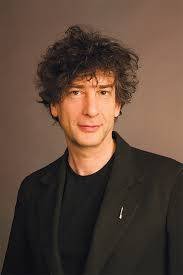
What are the daily habits of wealthy people?
 By James Carter
By James CarterWealthy people tend to follow daily habits that optimize their health, mindset, productivity, and finances. From consistent reading and exercise to disciplined money management, networking, and mindful goal-setting, these routines shape long-term success. While wealth accumulation depends on strategy and opportunity, daily choices create the foundation for sustainable prosperity.
Why Do Daily Habits Matter for Building Wealth?
Daily habits are the hidden architecture of success. Wealth is not usually built from a single breakthrough but rather from consistent behaviors that compound over time. Think of habits as small investments in yourself. Just as compound interest grows money, repeated actions—reading, networking, saving—grow skills, knowledge, and opportunities.
For instance, billionaire Warren Buffett spends 80% of his day reading. Similarly, Oprah Winfrey has spoken about her morning routine of meditation, exercise, and journaling, which sets the tone for her day.
Habits bridge the gap between intention and achievement. Without them, even the best goals remain dreams.
What Morning Routines Do Wealthy People Follow?
The mornings of wealthy individuals are often sacred. They view the first few hours of the day as an opportunity to set intention and focus.
Most high-net-worth individuals avoid diving straight into emails or social media. Instead, they prioritize self-improvement activities.
Common Morning Habits of Wealthy People:
Early rising – Many wake up before 6 AM to gain uninterrupted time. Apple CEO Tim Cook starts his day at 4:30 AM.
Exercise – Richard Branson credits his daily workout with adding 4 hours of productivity to his day.
Mindfulness – Meditation, prayer, or journaling is common. Ray Dalio, billionaire hedge fund manager, practices Transcendental Meditation.
Goal review – Wealthy individuals often revisit daily, weekly, or yearly goals to stay aligned.
The key is intentionality—using mornings not for reaction, but for creation.
How Do Wealthy People Manage Their Time Differently?
Time is the ultimate currency for the wealthy. Unlike money, time cannot be replenished. Successful individuals master the art of prioritization.
They apply principles like the 80/20 rule (Pareto principle), focusing on the 20% of tasks that produce 80% of results. For example, Elon Musk uses time-blocking, scheduling his day in five-minute increments to maximize efficiency.
Time Management Habits of the Wealthy:
Delegating tasks that don’t require their expertise
Blocking distractions (social media, unnecessary meetings)
Prioritizing deep work over busy work
Setting boundaries around work-life integration
The wealthy understand that being busy is not the same as being productive.
Do Wealthy People Read Every Day?
Yes. Reading is one of the most universal habits among the wealthy. According to Tom Corley’s book Rich Habits, 88% of self-made millionaires read at least 30 minutes a day.
But they don’t read randomly. Instead of fiction or entertainment magazines, they prioritize materials that sharpen knowledge.
Books Wealthy People Often Read Include:
Biographies of successful leaders (Steve Jobs by Walter Isaacson)
Business strategy and leadership books (The Lean Startup, Good to Great)
Industry research, financial reports, and white papers
Personal development classics (Think and Grow Rich, Atomic Habits)
Bill Gates is known to read 50 books a year, often summarizing and sharing his insights publicly.
What Role Does Health Play in the Daily Routines of the Wealthy?
Physical and mental health are non-negotiables for sustained success. A fortune cannot be enjoyed if health is compromised.
Examples:
Jeff Bezos ensures he sleeps 8 hours nightly, calling it his “secret weapon” for decision-making.
Arianna Huffington built a business empire around the science of sleep after collapsing from exhaustion.
Many wealthy individuals invest in personal trainers, nutritionists, and biohacking practices (ice baths, intermittent fasting).
Daily Health Habits:
Exercise (cardio, strength training, yoga)
Mindful eating, often with plant-rich diets
Regular medical checkups and preventive care
Stress-reducing practices like meditation
Health, for the wealthy, is viewed not as an expense but as an investment.
How Do Wealthy People Handle Money Differently Day to Day?
Wealth is built not only by earning but by managing wisely. Daily financial discipline distinguishes the rich from the average.
Examples of Daily Financial Habits:
Tracking spending (many use apps or detailed spreadsheets)
Investing regularly, even in small amounts
Avoiding impulsive purchases
Reviewing cash flow, budgets, or portfolios
Even billionaires like Warren Buffett live frugally. He still resides in the modest Omaha home he bought in 1958 for $31,500. This demonstrates that wealth isn’t just about income but about disciplined stewardship.
What Networking Habits Do Wealthy People Practice Daily?
Wealthy individuals view relationships as assets. They nurture connections intentionally, knowing opportunities often flow through people.
Networking Strategies of the Wealthy:
Sending thank-you notes or follow-up emails daily
Attending industry events regularly
Mentoring others (creating reciprocity and goodwill)
Cultivating mastermind groups or peer networks
Reid Hoffman, co-founder of LinkedIn, built his career around strategic networking. He calls it “permanent beta”—constantly learning through relationships.

Do Wealthy People Use Daily Reflection Practices?
Yes, reflection is a powerful habit for course correction and clarity. Many wealthy people use journaling or meditation as tools for self-awareness.
Examples:
Oprah Winfrey writes daily gratitude lists.
Richard Branson carries notebooks everywhere to jot down ideas.
Entrepreneurs often review what worked and what didn’t each day.
Reflection helps the wealthy avoid repeating mistakes and reinforces learning.
How Do Wealthy People Balance Work and Family?
Contrary to stereotypes, many wealthy individuals guard family time fiercely. For instance, Mark Zuckerberg blocks out evenings to spend with his family.
They often build rituals like family dinners, weekend getaways, or bedtime routines. The philosophy is simple: wealth is hollow without meaningful relationships.
FAQs About the Daily Habits of Wealthy People
Q1. Do wealthy people watch TV every day? Most wealthy individuals limit passive entertainment like television. According to Rich Habits, 67% of wealthy people watch TV less than one hour a day, while 77% of poor people watch more than one hour daily. Instead of consuming mindless shows, they invest that time in reading, learning, networking, or personal growth. Wealthy people understand that their time is valuable, so they choose purposeful activities that align with long-term goals rather than short-term distractions.
Q2. How much do wealthy people sleep daily? Wealthy people tend to prioritize rest because quality sleep directly impacts decision-making and performance. Most aim for 7–8 hours each night, ensuring mental sharpness and energy throughout the day. For example, Amazon founder Jeff Bezos often highlights how his eight hours of sleep helps him make better business choices. Similarly, LeBron James reportedly sleeps up to 10 hours daily to maintain his athletic performance. Wealthy individuals see sleep not as wasted time, but as an investment in productivity.
Q3. Do wealthy people meditate daily? Yes, many wealthy individuals practice mindfulness through meditation, breathing exercises, or prayer. Meditation allows them to reduce stress, gain clarity, and maintain focus in high-pressure environments. Billionaire Ray Dalio attributes much of his calm leadership style to Transcendental Meditation, while Oprah Winfrey incorporates meditation into her morning routine for emotional balance. This daily habit helps them manage stress, improve creativity, and stay grounded despite busy schedules. By quieting their minds, wealthy people make more thoughtful, strategic decisions.
Q4. What do wealthy people eat daily? Wealthy people often focus on nutrient-dense diets to fuel their bodies and minds. Many adopt meal plans rich in whole foods, lean proteins, vegetables, and healthy fats. For example, Steve Jobs famously leaned toward plant-based eating, while NFL star Tom Brady follows a strict anti-inflammatory diet. They typically avoid excessive junk food, sugar, and processed items. Nutrition is seen as an investment, just like finances—good food choices contribute to energy, productivity, and long-term health, which supports wealth-building goals.
Q5. Do wealthy people write down their goals daily? Yes, goal-setting is a universal habit among the wealthy. Writing down goals daily keeps them focused, motivated, and accountable. According to research from Dominican University, people who write their goals are 42% more likely to achieve them compared to those who don’t. Wealthy individuals frequently review short-term tasks and long-term visions to stay aligned. For example, entrepreneurs often journal each morning, outlining priorities and intentions. This clarity ensures that their daily actions consistently move them toward meaningful outcomes.
Q6. Do wealthy people use social media daily? Yes, wealthy individuals often use social media, but they do so intentionally. Instead of scrolling aimlessly, they treat platforms as tools for brand-building, networking, and business growth. Entrepreneur Gary Vaynerchuk is a strong example—he leverages Instagram, LinkedIn, and TikTok to share insights, connect with audiences, and drive sales. Wealthy people limit passive consumption and maximize productive engagement. This purposeful use of social media reflects their understanding that digital presence can create influence, opportunities, and revenue streams.
Q7. Do wealthy people exercise daily? Most wealthy people commit to daily physical activity, often 30–60 minutes per day. Exercise boosts energy, enhances focus, and reduces stress—all crucial for peak performance. Richard Branson once said, “I can achieve twice as much in a day if I exercise.” Wealthy individuals may engage in strength training, yoga, running, or sports. They treat fitness as a core priority, not a luxury. Maintaining strong health ensures they have the stamina and clarity needed to manage demanding schedules.
Q8. Do wealthy people save money daily? Yes, wealthy people practice daily financial discipline, often automating savings and investments to ensure consistency. Instead of relying on willpower, they use systems that make money grow without requiring constant decisions. Many review expenses, avoid impulsive purchases, and reinvest earnings into assets that appreciate. For example, Warren Buffett has emphasized frugality and long-term investing. Wealthy individuals understand that small, consistent savings can accumulate into massive wealth over decades, making financial discipline a critical daily habit for success.
Q9. Do wealthy people work on weekends? Some wealthy people do work on weekends, but usually in more reflective or creative ways rather than repetitive tasks. Elon Musk has admitted to working weekends but balances that with family commitments. For many, weekends are used to brainstorm ideas, read, strategize, or plan upcoming projects. Others may dedicate time to personal growth, hobbies, or philanthropy. Wealthy individuals often blend work and life seamlessly, ensuring that their weekend efforts remain purposeful without overwhelming their personal relationships.
Q10. Can adopting wealthy habits make anyone rich? Adopting wealthy habits can’t guarantee billionaire status, but it greatly increases one’s chances of financial security and success. Habits like daily reading, exercise, goal-setting, saving, and networking provide the foundation for building opportunities. Over time, these actions compound into improved skills, stronger relationships, and smarter financial choices. While external factors—such as industry, timing, and luck—also play roles, cultivating wealthy habits ensures individuals are ready to seize opportunities. Essentially, wealth-building habits create the right conditions for success.
Key Takeaways
Wealth is a byproduct of consistent, intentional daily habits.
Mornings set the tone: early rising, exercise, reading, and mindfulness are common.
Time management, networking, and goal-setting are essential.
Financial discipline, health care, and reflection practices sustain wealth.
Real-life examples—from Buffett to Oprah—prove habits matter more than luck.
Conclusion
Wealthy people don’t rely solely on luck or talent—they engineer success through repeated actions that align with their values and goals. Whether it’s daily reading, exercising, mindful spending, or networking, these small practices compound into extraordinary results over time.



